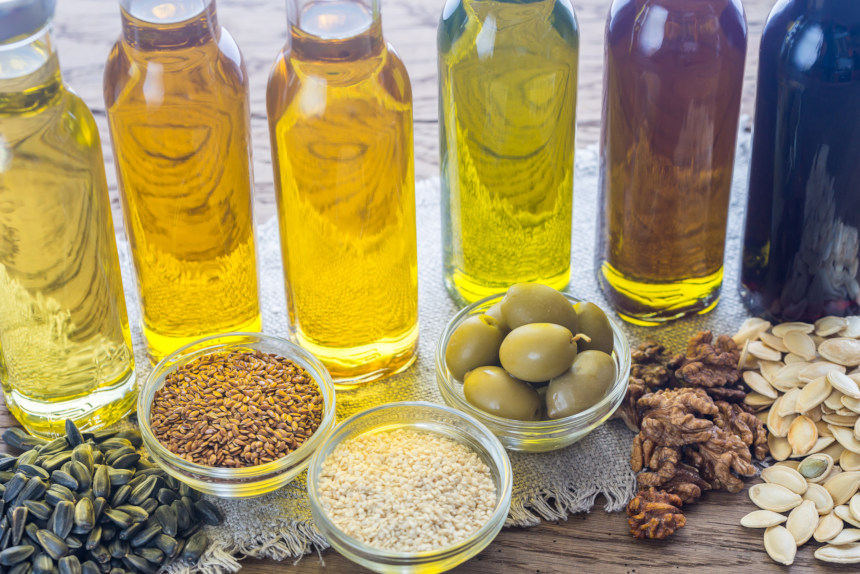“Your Health Checkup” is our online column by Dr. Douglas Zipes, an internationally acclaimed cardiologist, professor, author, inventor, and authority on pacing and electrophysiology. Dr. Zipes is also a contributor to The Saturday Evening Post print magazine. Subscribe to receive thoughtful articles, new fiction, health and wellness advice, and gems from our archive.
Order Dr. Zipes’ new book, Bear’s Promise, and check out his website www.dougzipes.us.
A friend recently asked me what his wife might take besides statins to reduce her risk of coronary heart disease (CHD) since statins gave her leg cramps.
Fortunately, other choices exist to substitute for statins or, in some instances, to add to them when the statins do not provide sufficient benefit.
Fish Oil
As I wrote previously, whether fish oil can reduce the risk of cardiovascular disease (CVD) has been controversial, with some studies showing benefit, and others not. However, recent studies have definitively put fish oil in its place to reduce the risk of CVD. For example, a study of over 4 million participants 40-69 years old with no history of CVD found that those using fish oil supplements habitually showed a 13 percent lower risk of death, 16 percent lower risk of cardiovascular mortality and 7 percent reduced risk of cardiovascular events compared to the general population.
The type and concentration of the fish oil made the difference. In a landmark study named REDUCE-IT, a concentrated form of fish oil, icosapent ethyl, which is a prescription-grade fish oil that contains pure eicosapentaenoic acid (EPA) —now FDA approved and sold under the brand name of Vascepa — was tested in over 8,000 patients who had elevated triglyceride levels despite taking statins. The authors found that two grams of icosapent ethyl twice daily significantly lowered the risk of heart attacks, strokes, angina, and cardiovascular death, compared to a placebo.
Over a five-year follow up, patients receiving icosapent ethyl were about one third less likely to need coronary revascularization procedures such as bypass surgery or stent implantation, compared to those receiving placebo. (Exactly how the drug works is unclear but may be by reducing risky plaque accumulation that may clog coronary arteries, a concept being tested in an ongoing study called EVAPORATE.
Olive Oil
Olive oil, high in monounsaturated fat, is an important ingredient of the Mediterranean diet, one of the few diets shown in scientifically controlled experiments to reduce the risk of CVD. In one study, participants eating the Mediterranean diet supplemented with nuts or with olive oil each had about a 30 percent reduction in heart attack, stroke, or death from cardiovascular disease compared to those eating the reduced fat diet. Benefits were greater in those who adhered more closely to the Mediterranean diet.
A recent analysis of almost 100,000 participants combined from the Nurses’ Health Study and Health Professionals Follow-up Study demonstrated that higher olive oil intake was associated with reduced risk of CVD. The authors suggested that substituting olive oil for margarine, butter, mayonnaise and dairy fat could lead to reduced risk of CVD.
Coconut Oil
Coconut oil is high in saturated fat, potentially raising serum cholesterol levels. To test this possibility, scientists analyzed 16 studies that evaluated the impact of coconut oil on cholesterol levels. They found that consumption of coconut oil significantly increased LDL-cholesterol levels (bad cholesterol) by 10.5 mg/dl and HDL-cholesterol (good cholesterol) by 4 mg/dl, compared with consumption of non-tropical vegetable oils. While the study did not report clinical outcomes, LDL cholesterol is known to be a major cause of CVD by depositing cholesterol in the coronary artery wall to cause atherosclerotic obstruction. Whether the potential beneficial increase in HDL-cholesterol offsets the potential harmful increase in LDL-cholesterol is not known, and present information does not allow a definitive statement of benefit or harm. However, it would seem prudent to substitute vegetable oils like olive oil for coconut oil where possible.
Palm Oil
The impact of palm oil, used throughout the world, on blood lipids and CVD is unsettled. Palm oil contains palmitic acid, which is a saturated fatty acid. Saturated fats are known to elevate total and LDL-cholesterol levels, which are risk factors for coronary disease. However, multiple animal and human studies show that palm oil consumption does not elevate serum cholesterol levels or cause coronary artery disease, perhaps because it contains other ingredients such as oleic and linoleic acids, which are monounsaturated and polyunsaturated, respectively. Palm oil also contains vitamins A and E, powerful antioxidants that may help protect the heart and blood vessels from plaques and ischemic injury. Effects also depend on whether the oil is extracted from the fruit versus the kernel (pit) of the Elaeis guineensis palm plant. Both oils are high in saturated fats, but palm fruit oil used in moderation delivers a unique blend of fats that provide health benefits. Further studies are necessary to determine the risks and benefits of palm oil consumption.
We can conclude that fish oil and olive oil exert beneficial actions on the heart while assertions about coconut oil and palm oil await results from further testing.
Featured image: Shutterstock
Become a Saturday Evening Post member and enjoy unlimited access. Subscribe now




Comments
So what I take away from this is to continue with the extra virgin olive oil in moderation, Dr. Zipes.